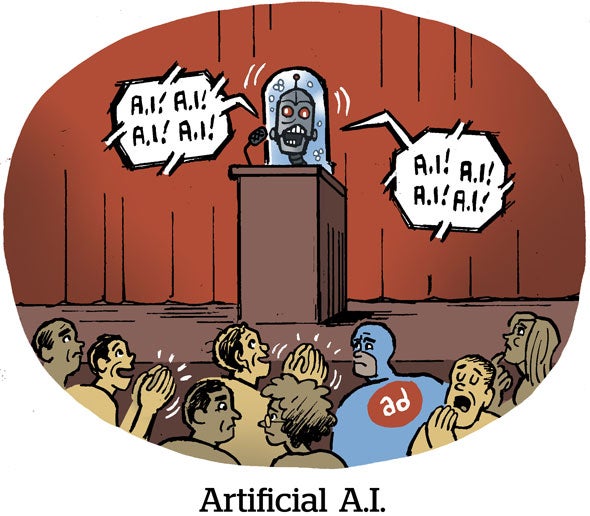Here’s today’s AdExchanger.com news round-up… Want it by email? Sign up here.
After-Hours FOMO
When Google updates its search algorithm, as it did in November, the SEO world scrambles to reverse engineer the changes and discover which levers Google pulled in the background.
Which is the context behind a recent discovery by SEO expert Joy Hawkins: “Well the news is out,” she tweeted. “The new ranking factor we are seeing that has a massive impact on ranking is HOURS.”
In other words, a local business’s hours of operations – whether it’s listed as open or closed – is now being factored heavily into search and Google Maps results.
It’s a logical update.
Many online pickup orders are immediate purchases, so directing someone to a closed listing is worse than useless for Google. And Maps no doubt gets complaints from people who placed orders at locations that aren’t open – or searched for coffee and then showed up at a closed shop.
If you’re open 24 hours, you deserve the coffee-related search traffic at 3 a.m. That seems fair.
But it’s more complicated for local services like movers, lawyers, psychologists or medical practices. People aren’t necessarily looking to consume those services at the moment they’re searching for them. They’re most likely doing research, possibly at night or on the weekend when locations are closed.
All That And A Bag Of Chips
Ever wondered why some countries have bizarro flavors of Lay’s or Pringles? Or why you can get lasagna-flavored potato chips in Thailand and sweet Thai chili chips in the UK, but not vice versa?
It starts with data analytics, according to a report by The Guardian looking into the industry behind “crisp flavours.” (Lol it’s a UK publisher.)
Pepsi “slurps up” all the data available on recipes and menus in a market to see what flavors and spices are trending, says Tom Wade, the brand’s global development director.
Pringles, meanwhile, uses a “Tinder-like tool” that survey takers use to swipe left or right on potential flavors. The brand also scrapes data from bloggers or influencers who write about food and recipes.
But China has the wackiest, most experimental market for chips. Not only can you scarf on flavors like “beer” and “rose petal,” but there are even “sensorial lines” that “numb, cool and fizz” your palate.
Plus, with the largest population, there’s simply more demand in China. But, interestingly, Wade says China’s wide range of chips is also a result of its high level of ecommerce grocery adoption.
“Because of that,” he says, “you have products that trend and bubble up very, very fast.”
Your Life Story, By Google
Google is experimenting with adding an AI integration into its Search and Photos offerings, dubbed “Project Ellmann.”
The idea, based on an internal proposal reviewed by CNBC, is to use the Gemini large language model to surface patterns across a user’s Google Search queries and within their Google Photos accounts to create a chatbot that can “answer previously impossible questions” about that person.
“Imagine opening ChatGPT, but it already knows everything about your life,” according to the proposal. That surely won’t ring any alarm bells among privacy regulators.
Using the tech, Google can create a detailed profile by identifying key moments in someone’s life, like their college years or the birth of a child, and make connections between people – and even pets – by identifying faces that commonly appear together.
Google hasn’t revealed plans to monetize the tech yet, but there are clear advertising opportunities. For example, Google could determine if a person enjoys Italian food because they frequently take photos of pizza and pasta. The offering could also be used to track products a person is interested in or to determine when they typically take vacations and with whom.
But Wait, There’s More!
Meta has hired Dentsu as the “customer relationship solution provider” for WhatsApp. [Adweek]
Google employees call out discrepancies between the company’s demo for its new AI model, Gemini, and how the product actually works. [Bloomberg]
Zombie TV has come for cable. [NYT]
X is trying to secure smaller advertisers because Elon Musk alienates big brands. [WSJ]
You’re Hired!
IPG-owned UM promotes Erin Quintana to US CEO. [MediaPost]













